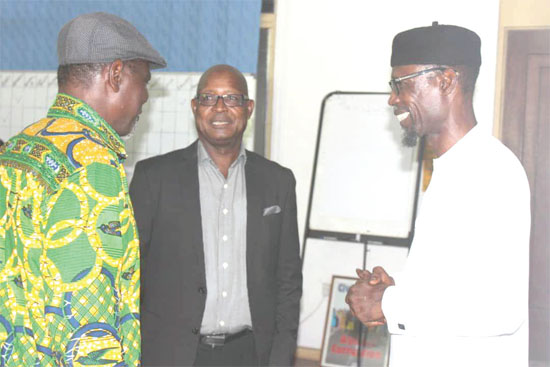
Faith-based organisations meet to validate draft manual on corruption
Representatives of faith-based organisations (FBOs) have met in Accra to validate a training manual for sensitising Ghanaians to the fight against corruption.
The manual gives the legal and policy framework of the anti-corruption campaign in the country and details the roles of the various groups in that fight.
Advertisement
It will be a reference material for facilitators and trainers of FBOs and religious groups, civil society organisations and the media.
The draft manual was developed by the Ghana Integrity Initiative (GII), the local chapter of Transparency International (TI).
It was developed under its Interfaith project dubbed, “Speak up, resist and report corruption,” and supported by the Danish organisation DANIDA.
Thursday’s meeting brought together ministers of the gospel, the Chief Imam, representatives of the Ahamadiya Muslim Mission and civil society organisations such as the Ghana Anti-Corruption Action Coalition (GAAC).
Draft
Taking the representatives through the draft manual, the Director of Anti-Corruption at the Commission on Human Rights and Administrative Justice (CHRAJ), Mr Charles Ayamdo, said about 85 per cent of Ghanaians adhered to either the Islamic or the Christian faith, and, therefore, building their capacities would help in the fight against corruption.
He added that the manual targeted those in the FBOs, religious and civil society organisations, and the media.
"The training manual is to help all in identifying what corruption is, where to report it and to help all to play their roles effectively under the National Anti-Corruption Action Plan (NACAP)," he said.
Key actors
The Executive Director of the GII, Mrs Linda Ofori-Kwafo, said it was the GII's belief that religious and faith-based organisations were key in the campaign against corruption.
That, she said, was because most Ghanaians visited either a mosque or a church regularly.
She said Ghanaians also had a strong belief in their pastors, shiekhs and imams.
"We are trying to inculcate an understanding and appreciation of the anti-corruption agenda of the country in our leaders, as detailed in the National Anti-Corruption Action Plan," she said.
Mrs Ofori-Kwafo said with the support of DANIDA, GII was engaging stakeholders - under the “Speak up, resist and report corruption” project - through initiatives such as training and sensitisation to get to know the NACAP agenda better, identify corruption and know how to report it.
"By this, we are trying to encourage more people to report corruption, and we are doing this in five regions and 50 districts of the country initially and then cover the whole country later,” she said.
"The development of the manual is to help train trainers, leaders of these institutions, who will in turn train more people to create the awareness and get the critical mass of people knowing and speaking out against corruption," she added.
Moral authority
A spokesperson for the National Chief Imam, Sheikh Arimiyawo Sharibu, was of the view that the moral authority of pastors and imams placed them in a position to lead the training of their followers in the anti-corruption fight.
He was also of the view that corruption, apart from it being condemned in the Qu’ran and the Bible, had immediate negative effects on the people.
Sheikh Sharibu said it was, therefore, important for Muslims and Christians to bear that in mind; hence, the manual to deepen knowledge on the issue and serve as a reference material for leaders.
Issues
During the discussions, issues of interest that came up included how pastors, imams or sheikhs could report on suspected corruption of their followers or members and how gifts ought to be classified, particularly with FBOs that depended on the benevolence of people to operate.
The consensus was that the Whistle Blowers Act, which had a component where religious leaders themselves offered shelter to whistle blowers, had to be popularised.
Additionally, there was concensus that religious leaders had to have a sense of standards in the acceptance of gifts in order not to compromise their moral authority in the fight.
The draft manual will incorporate the ideas of stakeholders and be printed for distribution to the leaders.
The GII also intends to have an electronic version for stakeholders.